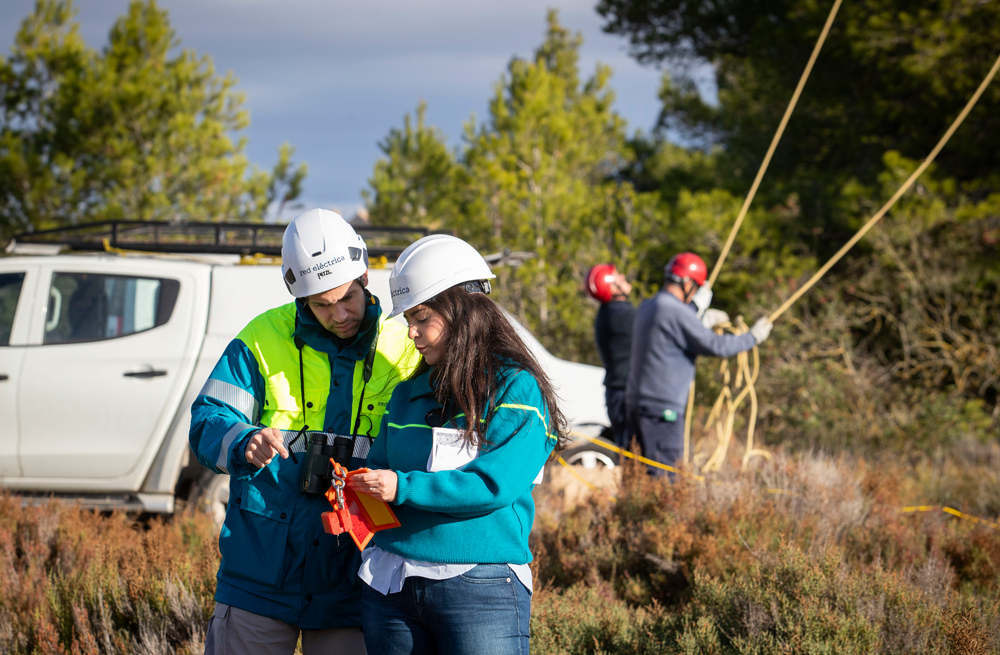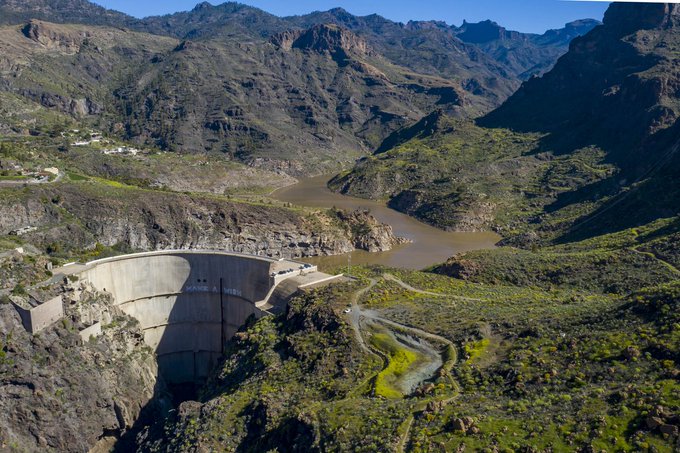Discover what Red Eléctrica is, what we do, and why we are the backbone of the electricity system in Spain and the ecological transition.
27 small towns come together to launch the National Host Village Network for Teleworking
- The project is promoted by Grupo Red Eléctrica and El Hueco, and with the support of Booking, it is open for all municipalities of rural Spain with fewer than 5,000 inhabitants which meet teleworking conditions
- The towns registered to date are located in Huelva, Málaga, Albacete, Cuenca, Guadalajara, La Rioja, Navarra, Teruel, Burgos, León, Palencia, Soria and Zamora
A total of 27 small towns form part of the National Host Village Network for Teleworking (Red Nacional de Pueblos Acogedores para el Teletrabajo), a project promoted by Grupo Red Eléctrica and El Hueco with the support of Booking to promote rural Spain as an optimal destination for teleworking.
The Host Village Network’s objective is to ensure the necessary and favourable conditions for people who wish to develop a remote-based professional life in the Network towns, be it for short, medium or long periods of time and contribute to revitalising and repopulating sparsely-populated rural areas.
The network was presented today at El Burgo de Osma (Soria) with the participation of all mayors and mayoresses of the municipalities involved as well as representatives from Grupo Red Eléctrica, El Hueco and Booking.
“The rural world offers some teleworking opportunities which probably have not been appreciated until now. The Host Village Network turns the spotlight on rural areas as environments where it is possible to live and work and bring rural life closer to the people who have an interest in it. It does so by placing value on teleworking itself, since with experiences like this, new models open up that facilitate opportunities to work in rural environments”, says Antonio Calvo Roy, Red Eléctrica's Sustainability Director.
“The pandemic has brought teleworking to the fore and has contributed, in addition, to changing the perception that people living in urban areas have of the rural environment, which is now seen as a safe space with a high quality of life. Now is the time to take advantage of this favourable situation”, says Joaquín Alcalde, El Hueco’s Director.
The network is organised around an internet platform, www.pueblosacogedores.com, which collects information on the towns and all the possibilities they offer for teleworking and living there. Each municipality has a detailed fact sheet including a photographic report and a promotional video, with information on accommodation (you can book easily and quickly online with Booking.com), co-working spaces, internet coverage, public transport connections and whether or not there is a post office, ATM or bank, pharmacy, shops, schools and academies, worship places, leisure facilities and natural surroundings. Also, information on cultural and historical heritage, traditions and gastronomy of the place as well as the climate, air quality, safety and noise pollution levels and average cost of living per person per week.
Hosts for teleworkers
In addition, teleworkers are also offered the opportunity to have a more immersive stay, establishing contact with a reference person in each village, hosts or hostesses, who can provide advice and guidance to interested parties.
The search for the most suitable municipality is carried out using a powerful search engine and filters. Additionally, teleworking preferences can be made and the website itself provides guidance on the most suitable place to settle.
It is also possible to become part of the teleworkers' network community, which gives access to a number of functions such as a dashboard to manage all contact requests with the hosts or share reviews and comments on the towns’ network from other teleworkers.
The Host Village Network is looking to grow and is therefore open to all localities with fewer than 5,000 inhabitants who wish to join, for whom teleworking is seen as a resource to capture a floating population, attract talent, boost economic activity, revitalising the cultural and leisure offer and strengthening the social fabric. The registration of municipalities can be carried out through the website.
In this first phase, the following have joined; Benarrabá and Genalguacil (Málaga), Santa Ana la Real (Huelva), Nalda and San Vicente de la Sonsierra (La Rioja), Caleruega, Belorado, Covarrubias and La Sequera de Haza (Burgos), Santa Colomba de Somoza (León), Paredes de Nava (Palencia), El Burgo de Osma, Sarnago and Langa de Duero (Soria), Madrigal de las Altas Torres (Ávila), Rabanales de Aliste (Zamora), Milagro, Allo, Orisoaín and Berbinzana (Navarra), Oliete (Teruel), Kuartango (Álava), Orea and Sigüenza (Guadalajara), Huete (Cuenca), Elche de la Sierra and Letur (Albacete).










